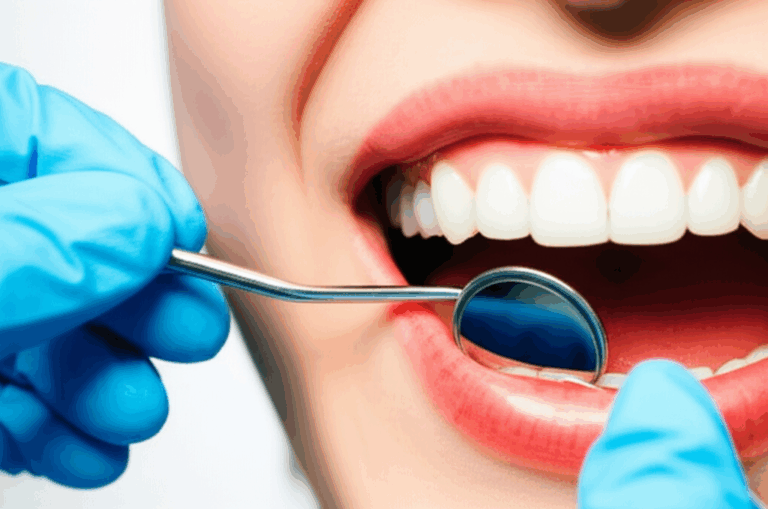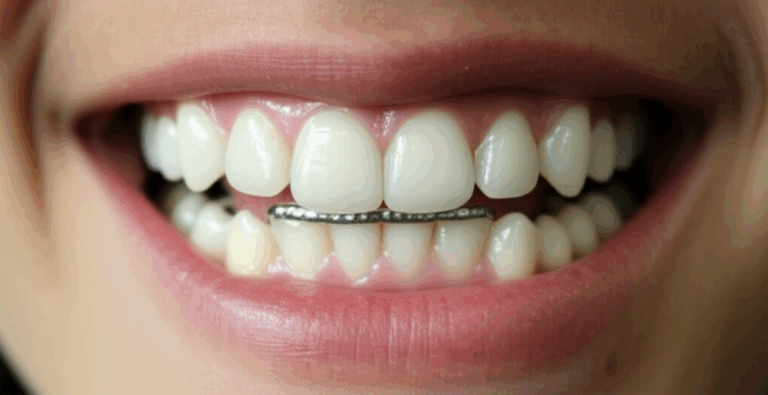
Does Altus Dental Cover Implants? My Complete Guide to Understanding Coverage
Dealing with dental insurance can feel confusing, especially when you’re thinking about a big, expensive dental procedure like implants. I’ve been there myself, I’ve read the paperwork, called customer service, and asked all the questions. In this guide, I’ll share what I learned about Altus Dental’s implant coverage—straight from my own experience dealing with insurance forms, hold music, and dentist visits.
Table of Contents
- Outline Overview
- Understanding Altus Dental Implant Coverage: The Basics
- Is Dental Implant Coverage Standard with Altus Dental Plans?
- Key Factors Influencing Altus Dental’s Implant Coverage
- Diving Deeper: What Determines Altus Dental’s Implant Benefits?
- Altus Dental Plan Types and Their Impact on Implant Coverage
- The Critical Distinction: Medically Necessary vs. Cosmetic Implants
- Common Coverage Limitations You’ll Encounter
- The Importance of Pre-Authorization for Altus Dental Implants
- Navigating the Process: How to Confirm Your Altus Dental Implant Benefits
- Reviewing Your Summary of Benefits and Coverage (SPD)
- Contacting Altus Dental Directly for Clarification
- Consulting with Your Dentist and Their Billing Team
- Understanding the Cost: What to Expect Even With Altus Dental Coverage
- Out-of-Pocket Expenses Beyond Insurance Contributions
- Payment Options and Financing Alternatives for Implants
- Altus Dental Implant Coverage FAQs
- Conclusion: Making an Informed Decision About Your Dental Health
Outline Overview
Before we start, here’s a quick guide of what I’ll go over:
- The basics of Altus Dental implant coverage
- Which plans might or might not cover implants
- Important rules and limits (yearly maximums, deductibles, medical reasons, and more)
- How to check your coverage and avoid surprises
- What costs to expect—even if Altus helps pay
- Simple FAQs from real experience
Understanding Altus Dental Implant Coverage: The Basics
Is Dental Implant Coverage Standard with Altus Dental Plans?
If you want a quick yes or no, I get it. I wanted a straight answer too. The truth is, it’s not simple—Altus Dental doesn’t have a “one answer fits all” for implant coverage. Some Altus Dental plans cover dental implants as “major services.” Others don’t mention them at all. So, coverage can be really different depending on your exact plan, who bought it, and how it’s set up.
The first time I asked, “Does Altus Dental cover implants?” I heard, “It depends—let me check your plan.” And that’s been my experience all along. Don’t assume you’re covered because someone you know with Altus got a different answer. Every plan is different.
Key Factors Influencing Altus Dental’s Implant Coverage
Let’s break down what really decides if your Altus plan helps pay for implants:
- Plan Type: PPOs, DHMOs, or Indemnity plans each have their own rules.
- Specific Policy Rules: Some plans say implants are a covered major service, but others call them an exclusion.
- Medical Needs: Coverage often depends on why you need the implant—fixing a chewing problem or just for looks.
- Waiting Periods & Pre-Authorization: Even if it’s covered, you may have to wait or get approval first.
I learned that doing some homework early saves a lot of stress (and surprise bills) later.
Diving Deeper: What Determines Altus Dental’s Implant Benefits?
Altus Dental Plan Types and Their Impact on Implant Coverage
When I was looking at my options, understanding the differences between Altus Dental’s plan types made things much clearer. Here’s what I found:
PPO Plans:
With an Altus Dental PPO, I got the most choices. These plans usually offer some coverage for bigger treatments, including implants, as long as I stayed in-network and followed their rules. They aren’t super generous—yearly maximums and coinsurance still matter—but at least implants were possible for me.
DHMO Plans:
If you have an Altus Dental DHMO, coverage is usually less. DHMOs often focus on cleanings, x-rays, and fillings. Implants might not be included, or you might have to see a certain specialist. My friend hit a dead end asking about implants on their DHMO, unless the missing tooth caused real chewing problems.
Indemnity/Traditional Plans:
These are pretty rare, but if you have a classic or indemnity Altus Dental plan, you might get part of your costs back. Be ready for more paperwork and paying upfront.
Whatever the plan, I always checked the actual policy, called customer service, and double-checked with my dentist’s billing person.
The Critical Distinction: Medically Necessary vs. Cosmetic Implants
Here’s something that surprised me. Insurance—Altus included—treats “medically needed” things differently than “just for looks.” When my dentist suggested an implant because I lost a molar, Altus didn’t care about how my smile looked—they cared if I couldn’t chew well.
“Medically necessary” means you’re fixing a real problem (eating, talking, keeping teeth from shifting). If you need it for this, you’re more likely to get help. Just want a better smile? You’ll have to pay yourself.
Common Coverage Limitations You’ll Encounter
Most people (me too) wish insurance would just pay the full bill. But the small print tells the real story:
- Deductibles: Before Altus pays anything, you pay your deductible—often $50–$150 per person.
- Coinsurance: Altus pays a percent of the allowed fee (maybe 50%), and you pay the rest, after the deductible.
- Annual Maximums: Forget about a full-mouth makeover—there’s usually a yearly max ($1,000–$2,500). I hit this cap quickly.
- Waiting Periods: Many Altus plans won’t pay for implants until you’ve been enrolled for 6–12 months.
- Exclusions and Clauses: Look for the exclusions list. My plan didn’t pay for implants to replace teeth missing before my coverage started (“missing tooth clause”).
These all add up. I learned that “coverage” might mean “some help, after a wait, and only up to your plan’s limit.”
The Importance of Pre-Authorization for Altus Dental Implants
This is my top tip: Always get pre-authorization. Before I got my first implant, I sent in a treatment plan and waited for Altus to reply with a written answer about coverage. This cut down on claim denials and helped me plan my costs. Not doing this? That’s like jumping into a pool without checking if there’s water.
Navigating the Process: How to Confirm Your Altus Dental Implant Benefits
Reviewing Your Summary of Benefits and Coverage (SPD)
That big packet or PDF your employer gave you—or your online member portal? That’s where you find your SPD (Summary of Plan Description) or coverage summary. I always started here. These documents list covered services, exclusions, coinsurance, yearly maximums, and special rules for “major services” like implants.
My tip: Search for words like “Major Restorative Services,” “Implant,” “Exclusions,” or look up codes like D6010 (implant), D6057 (abutment), and D6058 (implant crown).
Contacting Altus Dental Directly for Clarification
Sometimes, the SPD just doesn’t make sense. So I picked up the phone or logged into the Altus member portal. I called customer service (number is on your card) and asked straight questions:
- Does my plan cover dental implants (CDT D6010)?
- What percent is covered after my deductible?
- Is there a waiting period? How long?
- What’s my yearly max?
- Will Altus cover bone grafting if I need it?
- Do I need pre-authorization?
Always write down who you talked to and when.
Consulting with Your Dentist and Their Billing Team
Here’s the secret: dental offices deal with Altus Dental all the time. When I had a treatment plan, I took it to their insurance helper. They called Altus, checked coverage, checked if my dentist was in-network, and even submitted a “pre-treatment estimate.” It really helped that my dentist was in-network. Out-of-network = higher bills.
Your dentist can also tell you if you need extra things (bone grafts, tooth removal, CT scans). Get a clear list of every part you’ll need—my experience was that the post, abutment, and crown were all billed separately.
Understanding the Cost: What to Expect Even With Altus Dental Coverage
Out-of-Pocket Expenses Beyond Insurance Contributions
Even with Altus Dental on your side, implants are expensive and you’ll pay a lot yourself. Here’s how it worked for me:
Deductible:
Paid first—let’s say $100 each year.
Coinsurance:
If my plan covered 50% after deductible, and the dentist charged $4,500, but Altus’s “allowed” fee was $4,000, they’d pay up to $2,000 (if I hadn’t hit my yearly max). I’d pay the other $2,000.
Annual Maximum:
But my plan stopped at $1,500 for the year. That meant Altus only paid $1,500, no matter the bill.
Other Procedures:
Need a bone graft? Tooth pulled? These are usually billed separately and might have different coverage.
Example:
- Dental implant: $4,500
- Deductible: $100
- Altus covers 50% after deductible
- Annual max: $1,500
What I actually got:
Altus paid $1,500 (max reached fast). I paid $3,000 plus the deductible.
Lesson learned:
Dental implants are an investment, not a freebie—even with insurance.
Payment Options and Financing Alternatives for Implants
If paying your share feels too much (it did for me), there are ways to get help:
- In-office payment plans: Many dentists let you split bills over a few months if you ask.
- Third-party financing: Things like CareCredit are special health credit cards.
- Dental loans: Some companies focus on healthcare loans.
- Other treatments: If Altus won’t cover implants, ask about bridges or dentures. Offices that work with a good removable denture lab can sometimes make affordable dentures that work really well.
Don’t be afraid to ask about all your options at the start. Planning early can save you money worries later.
Altus Dental Implant Coverage FAQs
Here are the top questions I’ve heard—both from my own experience and from what others ask.
Does Altus Dental cover bone grafts if needed for an implant?
Usually, only if the bone graft is needed to support the implant and you’ve met other rules (waiting period, deductible, etc.). Always check the codes and get pre-authorization.
Is the implant crown/restoration covered by Altus Dental?
Often yes, but usually as a “major service,” and sometimes at a different percent than the implant post. Make sure you know if your plan covers just the surgery, just the crown, or both.
What if my Altus Dental plan doesn’t cover dental implants?
You still have options. Common choices are fixed bridges and dentures, which may be covered at a different rate. I’ve seen some really good-looking, working options come from a crown and bridge lab or implant dental laboratory. Or you can self-pay and look at payment options.
How long is the waiting period for Altus Dental implant coverage?
It’s usually 6–12 months for major services. My advice: check the exact time with Altus before you book your surgery.
Can I get full mouth dental implants covered by Altus Dental?
From my experience, getting coverage for a full mouth of implants is pretty much impossible because of yearly limits. Altus might help with one or two, but you’ll probably hit the yearly cap before you finish. If you need all teeth replaced, ask about mix-and-match options.
Conclusion: Making an Informed Decision About Your Dental Health
So, does Altus Dental cover implants? Here’s the truth: every plan is different, and the little details really matter for your budget. After hours of reading, calling, and going through claims, here’s my best advice:
- Get your plan documents, read them carefully, and highlight anything about implants.
- Ask Altus Dental (and your dentist’s billing helper) every “what if” question you can think of.
- Plan for real out-of-pocket costs, even if you get some help from your plan.
- Always get pre-authorization—do not skip this.
- Look at other good options if you need to; these days, modern labs can make great dentures or bridges.
You are your own best supporter. Use your experience, ask good questions, and don’t be scared to look around or talk to your dentist about price—your smile (and your wallet) will thank you.
If you’re looking for more ways to keep your mouth healthy, check out this teeth health resource for more ideas. Here’s hoping you have a smooth journey to a healthy, happy smile—implants or not!








